On Saturday, 9th May 2015, I had the opportunity to make a presentation at a TEDx Kiira event at the Serena in Kampala Uganda. This is the full text of my presentation.
“The future is today,” the theme of this event, fits well with my talk. The essence of my talk is to remind us that our today was determined by yesterday; as today we determine the future for the next generation.
By the end of my talk I hope to have persuaded you that by staying culturally rooted we can prosper economically and socially; and that we can assure a better future for the next generation.
Here is my story.
My name in full as appears on my birth certificate is Norah Esta Alinga Owaraga. I am the daughter of Ejakait Engineer George William Obityo Owaraga, the Chief; who is the son of the late Ejakait Yosia Egatunyu, who was among the chiefs of the Ikaribwok Clan of the Iteso.
 The Iteso nation is one of the first nations of Uganda.
The Iteso nation is one of the first nations of Uganda.
I was born in 1968 after Christianity had taken root in Uganda. At the time I was born, provision was made on official documents for one to state their Christian name; now it has been changed to first name. Norah and Esta are my Christian names and officially my first name is Norah.
Culturally, however, my first name is Alinga. A week after I was born I was named in an Iteso naming ceremony. I was named after the mother of my father, my grandmother, Ajakait Joyce Mary Alinga.
My name Alinga is part of my social capital. Within Iteso culture the name that one is given signifies one’s cultural roots. The philosophy that binds the Iteso nation – the creeping grass philosophy – emuria koliai (may the grass take root, continue to grow and spread) espouses the Iteso nation’s ideal of extending the influence and power of its people. Emuria koliai signifies that one has roots from whence they came.
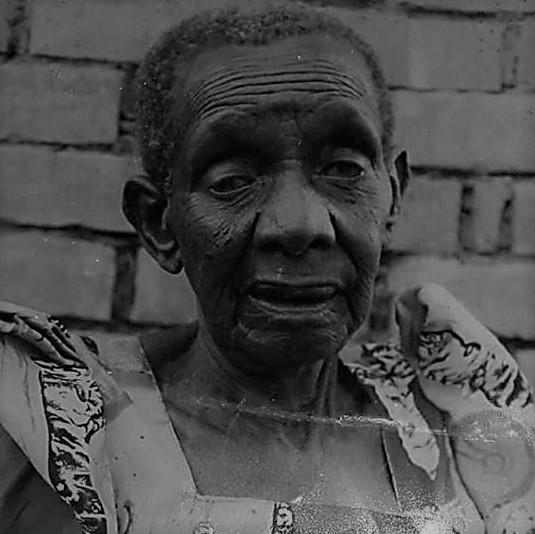 Ajakait Joyce Mary Alinga, mother of my father, my paternal grandmother, she who I was named after.
Ajakait Joyce Mary Alinga, mother of my father, my paternal grandmother, she who I was named after.
In a name, a child and the adult whom the child is named after are bestowed with pride and obligation. For the child, the pride of being the extension of a legacy; and for the adult the assurance that their legacy will live on in flesh and blood.
The child ideally grows up aspiring to achieve the greatness of their name; while the adult whom the child is named after nurtures the child to know who they are; to stay true to one’s roots and at the same time soar high to achieve greatness. As a child I had the privilege of spending significant time with my grandmother during which she convinced me of her greatness and therefore what I should aspire to become.
 My house at Kadoki Village in Pallisa, which I inherited as the heir of my grandmother.
My house at Kadoki Village in Pallisa, which I inherited as the heir of my grandmother.
At the death of my grandmother, I inherited her house which my father built for her. My inherited house is part of our ancestral homestead. I have deep roots on our ancestral land. Yes, scary for whoever thinks of uprooting me from our ancestral land.
At the death of my grandmother it became my duty to extend the legacy of our name, Alinga. With such firm roots and therefore power, however imagined, I have journeyed on this our world. My firm roots have determined my choices. I wear multiple hats. My multiple hats are related.
At CPAR Uganda we are mentors of rural men and women whom we motivate and encourage into self-reliant agents of positive change. Effective mentoring is done by example. Those mentored need to see how we the mentors are also agents of positive change.
Hence, I am a humanist blogger with a passion. I aspire to make myself a thorn in the flesh of those Ugandans who are culturally dislocated and yet are in positions of power which logically require them to be culturally rooted in their own ethnic group as well as the Ugandan nation.
I align with my favourite philosopher of all times, Lawino, the main protagonist of an African classic, Okot p’Bitek ‘s literary work “Song of Lawino”, that is set in the 1960s and in the culture of another of Uganda’s first nations, the Acholi.
 Acholi is one of the first nations of Uganda.
Acholi is one of the first nations of Uganda.
Lawino declared:
I do not understand the ways of foreigners, but I do not despise their customs. Why should you despise ours? Listen, my husband, you are the son of a chief. The pumpkin in the old homestead must not be uprooted! … Ignorance and shame provoke you to turn to foreign things.
Extract from Okot p’Bitek’s Song of Lawino
Lawino lectured her culturally dislocated husband, with such effectiveness that her lectures are still relevant for Uganda today. The symbolic meaning behind the “pumpkin in the old homestead must not be uprooted” is similar to the Iteso philosophy of emuria koliai – being rooted in one’s own culture, belonging and being part of a people.
- What proportion of Uganda’s public and civil servants today are like Lawino? Ugandans who are culturally rooted.
- What proportion are more like Lawino’s husband, Ocol? Ugandans culturally dislocated.
It is those who are like Ocol that I lament about the most in my blog posts.
 I invite you to explore the 300 plus other blog posts on my website: http://www.nowaraga.com
I invite you to explore the 300 plus other blog posts on my website: http://www.nowaraga.com
I would like to demonstrate to you that I am actually a purposeful lamenter. Being the sole proprietor of a social enterprise, Alinga Farms, is an example of me practising the actions I advocate for in my blog posts.
Some of you may be familiar with our products – Atorot (the dried calyces of the hibiscus sabdariffa fruit); and Ebaale (dried oyster mushrooms). Atorot and Ebaale are available in 13 outlets of five major supermarkets in Uganda.
 Atorot on a supermarket shelve favorably placed among internationally known brands
Atorot on a supermarket shelve favorably placed among internationally known brands
While distribution through supermarkets enables us to reach our high end market, we are also reaching our lower end market through our Alinga farms shop in Bugolobi Market in Kampala. Bugolobi market is best described as a farmers market that is bustling with hundreds of vendors selling food and other commodities.
In our shop, in addition to Atorot and Ebaale, we sell other value added food items that are characteristic of the Iteso cuisine. This is a significant achievement. Five years ago, Alinga Farms distribution was from the tiny kitchen in my flat.
As you may have noticed, my roots have determined the branding of our products; our brand names are in Ateso, the language of my people. ‘Food for your good health’ is our slogan at Alinga Farms. All our value added products we vet for Ugandan cultural acceptability, as well as nutritional value, as well as social value, as well as economic value.
 Atorot (hibiscus sabdariffa fruit) ready for harvest at Alinga Farms at our ancestral home in Kadoki Village in Pallisa.
Atorot (hibiscus sabdariffa fruit) ready for harvest at Alinga Farms at our ancestral home in Kadoki Village in Pallisa.
Take for example Atorot, our customers give us feedback that it gives them more energy and more blood. Our customers’ feedback is kind of confirmed by research findings. According to researchers in the United States of America, hibiscus sabdariffa is high in nutritional and medicinal value. It has antioxidants making it good for our hearts and bodies.
By taming free radicals – harmful molecules – antioxidants help to maintain the body’s good health. This is part of the social profit I advocate for – producing and selling products that impact positively on human health.
Hibiscus fruit is economically viable – researchers in the United States of America, for example, estimate that each year the United States of America imports more than 5,000 metric tons of dried calyces of hibiscus fruit, valued at over 22 million US dollars, for use in making herbal tea.
I’m sure you have already caught on that Alinga Farms is economically viable. Take my word for it, it is. In the interest of Alinga Farms’ land tenure security I beg your pardon for I will not give you the specific numbers of our economic viability. No need to over excite my landlord.
Alinga Farms is located on about four acres of land that is held under customary tenure. It is my father’s land at Kadoki Village in Pallisa District in Eastern Uganda; land which he inherited from his father. The land that Alinga Farms occupies surrounds my father’s ancestral home, our family home; and it is on this land where my house, which I inherited from my grandmother, is located.
Culturally, as a female member of our family – a powerful one at that, who is continuing the legacy of the matriarch Alinga – I am allowed access to customary land, as long as the leader of our family, my father, gives access to it.
Yes, some might think it a huge risk to invest on land for which you do not have clear ownership. It is indeed a huge risk. I am comforted, however, that as long as my father is still alive, I am safe; I am his daughter and am culturally his mother, after all. I am also hopeful, that because of Alinga Farms’ significant social impact, the heir to my father’s land will continue to respect my access to the land – the use-rights that my father has given to me, in accordance with Iteso customary tenure.
Just in case, let me clarify that I am in no way using this event to attempt to influence my father’s last will. I pray for longevity of life for him and for all my family members. I pray that his heirs remain Iteso who are culturally rooted and appreciative of the Iteso philosophy – emuria koliai – and that they will not attempt to uproot me from our family customary land.
It is important that I share that the idea for Alinga Farms came to me as a challenge. I am a fellow of the Africa Leadership Initiative East Africa through which I am a member of the Aspen Global Leadership Network. It is within this fellowship that I was challenged by my fellows to come up with a project for the benefit of others, less fortunate. I thus set up Alinga Farms with social impact in mind.
My aunts socially co-own our mushroom production – they are after all the experts in sunshine-based value addition. My aunts are my associates, they are not my employees. I ensure that my associates receive high quality inputs. My associates ensure the production of high quality value added mushrooms.
 A visit with one of my aunts, Ija Adekete, sister to my father, and who is among the Alinga Farms mushroom producers
A visit with one of my aunts, Ija Adekete, sister to my father, and who is among the Alinga Farms mushroom producers
We pay them for the produce and then bring it to Kampala for packaging and marketing at international standard. This has positively impacted on my social life with my aunts – the tensions related to extended family dependencies are eliminated. I do not feel it a burden to provide for them; and the dignity of my aunts is intact. They are receiving support from their daughter, but they are not beggars, they are productive business women.
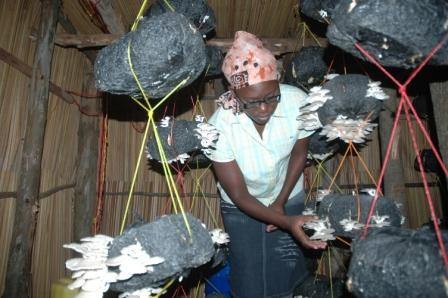 Harvesting ebaale (mushrooms) at Alinga Farms at Kadoki Village in Pallisa
Harvesting ebaale (mushrooms) at Alinga Farms at Kadoki Village in Pallisa
Not all the mushrooms that my aunts produce do we sell. They retain the mushroom stems which are cut off. These cut-offs provide them with a reliable source for nutrition. The mushroom cut-offs have also given them a lot of power in the community. They use them as currency for paying for labour – many of our village mates, fellow women especially, trade their labour in exchange for mushroom cut-offs.
My aunts are also part of the network of over 50 out-growers who supply us with the dried calyces of hibiscus fruits. Similar to the mushroom producers, each of our hibiscus farmers is an independent business person; we simply guarantee a market for their high quality produce.
Alinga Farms has only one full-time employee, my personal assistant, Catherine Itipet. One of my brothers – Simon Opiio – the son of my father’s late brother is my farm manager. His job title is perhaps a bit deceiving for he does not earn a farm manager’s salary. He is the one responsible for establishing and managing our demonstrations on the farm.
Like all farmers who supply us, we pay him for the high quality produce from the demonstrations and from his own farms. He gets a bit extra though, as he is the one who, on behalf of Alinga Farms, who does the purchasing of hibiscus from our suppliers. We pay him a commission fee.
This social cultural model of doing business does have its challenges. For example, mushrooms are very light and could be transported by bicycle, but my aunts insist that we should pick up the produce from their homesteads, just so that their neighbours can see that they had a powerful visitor – car tyre marks in the compound are a huge status symbol.
Sometimes the fuel for the pickup, in comparison to the produce picked up, does not make economic sense, but the cultural social capital more than covers for it. It allows me the privilege to connect with my roots.
As I conclude, I make a plea to us all to recognise the importance of our cultural heritage; to recognise the non-commercial benefits that come from culture. Culture gives us our self-identity and character.
- When we give our children names, what do these names mean to them?
- How can these names inspire them to become rooted in their self-identity?
- Do our children know the language of their ancestors?
- How much of their heritage do our children loose when they are disconnected from their cultural elders – geographically; and sometimes just because they are unable to communicate in the language of their ancestors?
As one of my greatest heroes of all time observed:
People without culture feel insecure and are obsessed with the acquisition of material things and public displays, which give them a temporary security.
Nobel Laureate Wangari Mathaai
Let us go back to our roots and extinguish our distractive cultural emptiness.
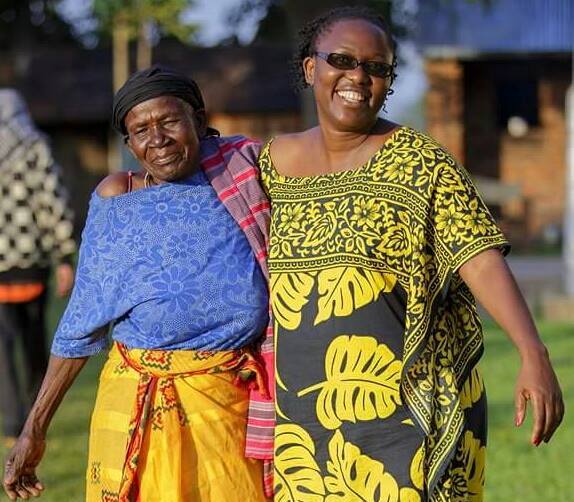 With one of my aunts, Ija Mangada, at our ancestral home in Kadoki in Pallisa
With one of my aunts, Ija Mangada, at our ancestral home in Kadoki in Pallisa
Who I am today was determined by my ancestors prior to my birth and at my birth. It is our turn to determine the future of the next generation. I am Alinga and I am culturally rooted. My journey continues; emuria koliai. Thank you.
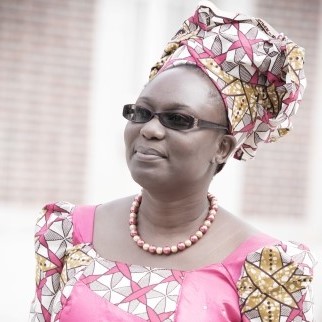
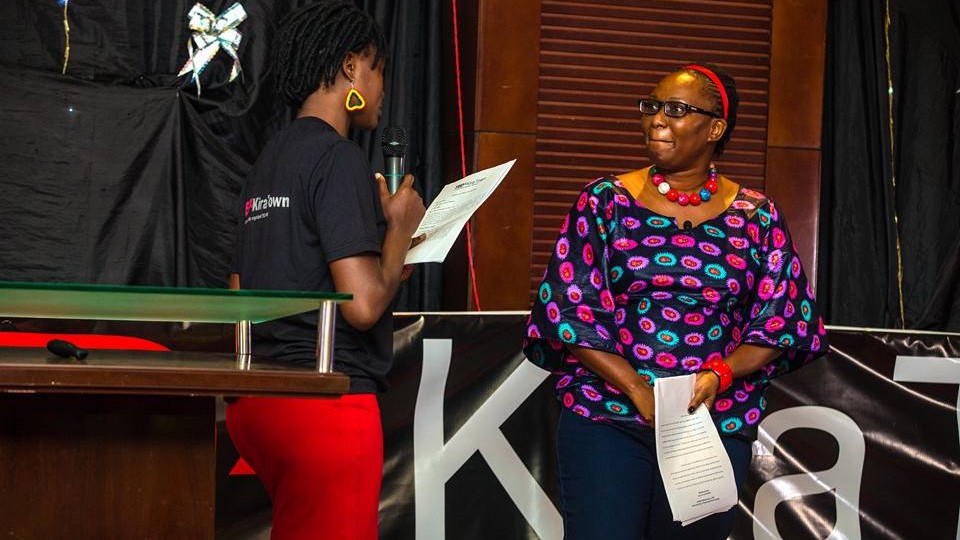
36 responses to “Going back to our roots & be culturally rooted”
Thanks Norah for that wonderful articulation on reasons why we should bare our heritage with pride.
LikeLiked by 1 person
Going back to our roots is just real. Thanks for this Norah.
Melton from Malawi.
LikeLiked by 1 person
Going back to our ROOT is the gate way to understanding who we are and where we come from. Thank you very much for this soul steering presentation Norah.
LikeLiked by 1 person
Good reading, we need people like you to explain and keep our cultures alive. Iteso used to the second largest tribe in Uganda but it is now the 4th. Am scared that they may become extict. But with people like Alinga they may survive. Emuria Koliai
LikeLiked by 1 person
I read this yesterday and then again today. My children are going to read it, and when you are done with the book please let me review it. You give me hope that we will not be lost as a people. Lead on, Alinga, LEAD ON!
LikeLiked by 1 person
Thank you for this.
You did it just as i was about to share.
We as a country, Africans are so rich and blessed. By following and accepting whatever is brought to us without thinking twice we are surrendering what we have.
Sticking with what we is a niche that shall get others comes come to us.
We need to reflect seriously who we are.
LikeLiked by 1 person
Thank you.
LikeLiked by 1 person
Norah, that was a great piece of work on our roots. I agree with all the sentiments.
John Okello-Okello
LikeLiked by 1 person
Thank you Hon Okello-Okello I am further strengthened with words of wisdom from our wise elders such as you are.
LikeLike
The importance of a name in influencing a child’s future … here is another story from Zimbabwe http://news.yahoo.com/whats-name-zimbabwe-obvious-160143571.html
LikeLike
Thanks very much, Norah. We are proud of people like you who express their Teso identity as clearly as eating eboo ka atap na alos. Emuria koliai. Simon Peter Ongodia, Ateso Language Board.
LikeLiked by 1 person
Great article Norah. Congratulations on the ALI project in rooted in Teso culture. My Ganda culture informs all that I do. I belong to the Ngeye clan(colobus monkey clan) so I try to protect natural forests. My son Lubwama(proudly named after his grandfather who was a Cheif) now better known as Navio demonstrates his pride in being a member of his fumbe(civet cat) through his rap music which is strongly built on Ganda cultural music. My farm named Zuri is a move to our East African roots. Thank you putting the concept into words for us. We can begin to understand and build on what motivates us.
LikeLiked by 2 people
i read this article a few minutes ago and like it for that fact that it signals to fellow africans .ugandans to embress their cultural diversity,norms, and values as part of success in the future .I realy agree with the writer that what we do today determines the future ,if we ignore our own culture what more will happen to the generation a head? ,how will they know where they came from? who will teach them if we fail to learn from our elders, who are diappearing without us learning the basics about cultural norms,am a student of public health and in health perspective its right to eat traditional foods as they build our security organs and improve on the immunity this is true for organic foods unlike inorganic foods that have been modified look at a future trend as these foods are disappearing what will happen to our health systems in the body ,that is why we shall complain, of heart diseases, we as iteso eat eboo(peas leaves),gnuts among others that improve eye sight,and many benefits. so we need to improve on our dieting not to consumes certain foods becuase of self esteem,it only backfires when one gets a complecated illness that not even their money can help remeber we live our lives once (emamei ecie odula)ateso proverb meaning no spear part.
LikeLiked by 1 person
Thanks Norah for that rich and inclusive article. It defines truism in real life setting
LikeLiked by 1 person
Inspiring; eyelama noi nu kiner kere, kobusi!
LikeLiked by 1 person
Hello Norah. Yoga. I loved reading your article. Ejai e bale lo epol oi ok Teso during certain seasons. Why have you not tried to carry out some research on that as it’s more adapted to the local environment.
as a young man looking after cattle in Mukongoro where your mother comes from apparently she is or was my dad’s cousin. We survived partly on aim uri a (wildgrapes). I would have wished to sponsor a research on that to commercialization them and make available all year. Through your connections and experience how can that be done. There are also aimuria or a dudum
an. I Kong ( white ants) are a great delicacy which if commercialised could generate a lot of income for our people. How can all these be done ? Emuria oliai. Alex Okoche +26772300075.
LikeLike
[…] in the Iteso culture – if you had taken time to click on the post: Going back to our roots https://nowaraga.wordpress.com/2015/05/10/going-back-to-our-roots/ you would have deduced that I indeed ‘move around’ in Teso. Actually I do more than […]
LikeLike
Ms. Norah Alinga Owaraga. I like the way that you passionately express what you believe in. Quite clearly you cause or even pose, intentionally or not, a challenge, which inevitably, consequently, needs all proud Africans to confront the following question with humility ( I hope) – what makes you proud to be descended from other Africans who came and perhaps have gone before you? They did what they did (our ancestors)- so what shall we (the current generation), or specifically (addressed to myself) what shall I do ( not just say or support, but do) to keep our heritage alive and also relevant. In a roundabout way, I guess what I am saying is – you make us proud!
LikeLiked by 1 person
Thank you so much Fidel – feeling even more proud of my ancestry and being apart of our people – the Iteso. Eyalama.
LikeLike
Thank you Norah. I have been greatly educated.
I’m going to search my roots. Thank you
LikeLiked by 1 person
Franklin, five years later, did you search and what did you find?
LikeLike
[…] I also invite you to read another of my posts on this blog titled: “Going back to our roots” https://nowaraga.wordpress.com/2015/05/10/going-back-to-our-roots/. […]
LikeLike
[…] example, in a TED Talk that I gave, a transcription of which I published on my blog under the title going back to my roots. Right there I explain the origin of my names as they appear on my birth […]
LikeLiked by 1 person
[…] Source: Going back to our roots […]
LikeLike
I love that passion for culture. I need your help, I am searching for the translation of aimuria in English
LikeLike
[…] am rooted in the Iteso culture – if you had taken time to click on the post: Going back to our roots you would have deduced that I indeed ‘move around’ in Teso. Actually I do more than […]
LikeLike
[…] “Great article Norah. Congratulations on the ALI project in rooted in Teso culture,” wrote Dr. Maggie Kigozi after she had read my blog post containing the text for the TEDx Kiira Talk that I gave in 2015 and titled: “Going back to our roots.” […]
LikeLike
[…] read this article a few minutes ago, “Going back to our roots,” by Norah Owaraga”, and liked it for the fact that it signals to fellow Africans, Ugandans to […]
LikeLike
I am Atwine Mugisha and I challenge myself to be more culturally rooted! Thank you.
LikeLiked by 1 person
I am from Kenya and a keen follower of any debate about Iteso. It is good to read this from somebody who is self-driven and has a purpose for others and self. I have read many bloggers or commentators on the Iteso social life and culture I have never come across one convincing like you Norah. Your ideas are refreshing and practical which I believe can transform the lives many people who do not believe in themselves because they fear to speak out about their identity especially those living in Kenya. Your insights and practical is what many need to hear beyond your funs here, in this platform. Many people I believe don’t use this platform. Do you think it is possible to network and reach out to small groups of men and women, young and old across borders? I am stepping forward to create a network with you and others who are like-minded?
LikeLiked by 1 person
[…] Above all, however, I am convinced that the manner in which I was raised and nurtured by my parents, and extended family, played a more significant role in influencing my career path and easily getting a full-time paid job. I was raised to be rooted and proud of who I am. I am Alinga Esta Norah Owaraga, Atesot, a Ugandan, an African, and I am culturally rooted. […]
LikeLike
[…] Emmanuel Olupot in comment to “Going back to our roots.” […]
LikeLike
[…] This is the text of my TEDx Kiira Talk which I gave in May 2015. Read more here […]
LikeLike
[…] Don’t get me wrong, I am fighting back and I know that I will soon triumph and my Alinga Farms will be back in full operation. Here is a reminder of my Alinga Farms in its glory. […]
LikeLike
[…] a business owner of my Alinga Farms shop in Bugolobi Market, I loved the alternative garbage management system that the Kampala Capital City Authority […]
LikeLike
[…] Delivering my TEDx Kiira Talk in which my roots at our cultural home in Kadoki Village in Pallisa. Click here to read the full text. To watch the video click […]
LikeLike